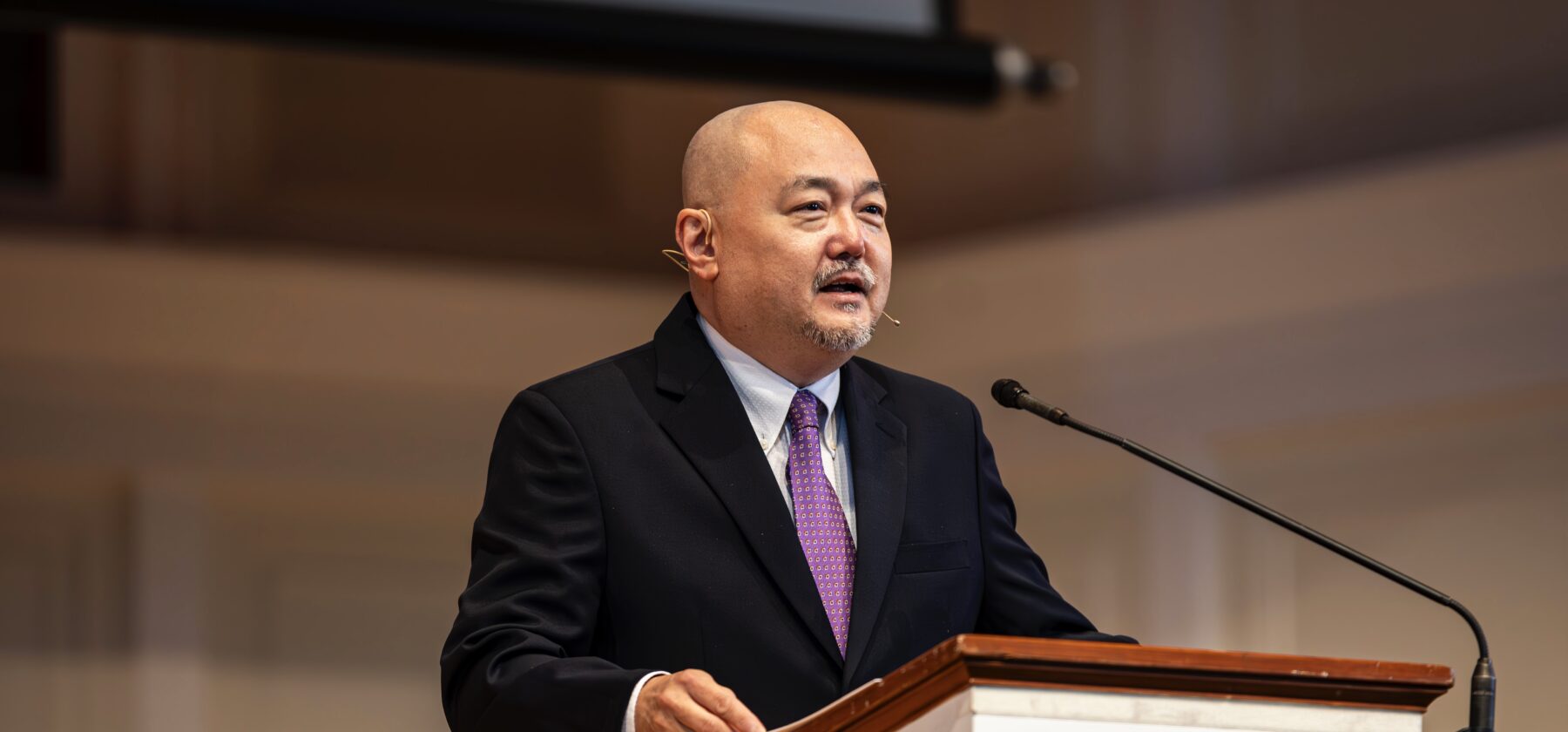From Deconstruction to Reformation: Dr. Soong-Chan Rah on Embracing Diversity in Faith and Practice
“Deconstruction” is one of the most infamous buzzwords in Western Christianity today, often blamed for many of the struggles in the American church. But according to Rev. Dr. Soong-Chan Rah, this year’s guest speaker for Missions Week at Gordon College, we don’t need to fear deconstruction. We need to redefine it.
Deconstructionism is a postmodern philosophy tied to semiotics and the fluidity of the meaning of words, applied by changing their meaning and value. But what’s happening in the American church is de-construction, and it can be a positive thing. Rah says what we are doing now is “challenging the dysfunctional structures that are in place in the Western Church and actually reconstructing it with the gospel at the center.”
At a March 19 Center for Faith and Inquiry (CFI) event, Rah countered that what’s actually declining is not Christian faith but a social-political version of Christianity that no longer represents the gospel nor our diverse nation and church. The American church is actually growing thanks to increasing diversity. What we need to do, he said, is reform and reconstruct the church to find unity in our shared love for Christ, celebrating our racial differences instead of letting them divide us.
Big “E” Evangelicalism vs. Little “e” evangelicalism
Nationally, Rah acknowledged, there’s been a decline in church members, seminary enrollment and Christian college enrollment. Gallup reported that 18 percent of Americans say they are neither spiritual nor religious in 2024, up from 9 percent in 1999. But Rah attested that this isn’t a decline in the church overall, or even a sign of deconstructionism, but “a decline in what we will call dominant culture Christianity, White American Christianity—or big ‘E’ Evangelicalism.”
Big “E” Evangelicalism, according to Rah, is an American Christian evangelical movement started by Billy Graham, Jack Watson and others in the 1960s and 1970s. There was a heavy emphasis in this movement on personal conversion and social revival. But over time it shifted from an ecclesial, theological movement to a political-social movement that some Christians view as disconnected from its origins. As America and the church became more diverse, figures like Tom Skinner started to shift their evangelical messages to include race and injustice, but those voices became drowned out for fear of losing big “E” Evangelicalism, Rah said.
On the other hand, little ‘e’ evangelicalism, Rah says, is the heart of the gospel, the belief that Christians gather and unite around the cross, the person of Jesus and our valuing of Scripture instead of our racial, political or other beliefs. “What we are doing is looking at the constructs of Christianity that have propped up Western, white American Evangelicalism and challenging those constructs,” Rah said. “The word I’ve been using is not de-construction but reformation.”
The Rise of a Diverse American Church
One of the biggest constructs the American church needs to reform, Rah says, is its views of diversity, because, “Diversity in the U.S. has not meant the decline of Christianity. I would argue it has meant the saving of Christianity.” The Pew Research Center reported that in 2011 over half of the babies born in America were nonwhite. Fast forward a couple decades, and Rah predicts America will no longer be majority white.
Similarly, the American church is growing more diverse at a fast rate, even in Gordon’s own backyard. In 1970, Boston had about 300 churches. In 2006 there were approximately 700 according to the Emmanuel Gospel Center—mostly in ethnic immigrant communities where the primary language is not English. “The ‘many’ that we talk about is not something to be feared and to be anxious about,” Rah noted. “The question is not, is there diversity? The question is, what’s the church going to do about it?”
A Call for Reformation
While the conversation around de-construction and diversity will continue, Rah urged students to think in the spirit of Gordon’s annual Missions Week about their brothers and sisters in the global Church. Christianity is skyrocketing in diverse communities worldwide, and they can serve as an example for how American Christians can love each other in our increasingly diverse society and church.
We don’t have to be threatened by differences in tradition, race or politics, or scared by talk of diversity and belonging, Rah said. What really matters is the heart of the gospel—loving God and loving our neighbors, the one and the many, as has been CFI’s theme this entire year.
 The Bell
The Bell